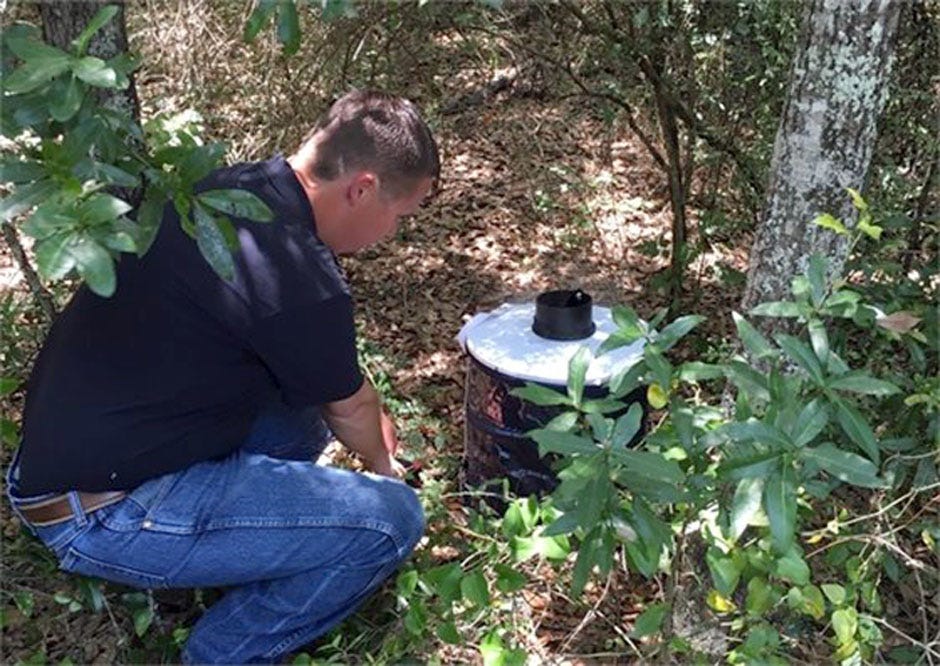MILTON — With a rise in moisture and temperature comes an increase in mosquitoes.
While these pesky insects are seemingly unavoidable, the Santa Rosa County Mosquito Control Department works tirelessly to protect residents and visitors through abatement programs, public awareness and education campaigns.

The county uses an Integrated Mosquito Management Program (IMM) that balances cultural, biological and chemical procedures. They are environmentally compatible and economically feasible to reduce mosquito populations to a tolerable level.
IMM is an effective strategy endorsed by the Department of Ecology and the Centers for Disease Control and Prevention (CDC), emphasizing long-term control of populations before they become disease-spreading adults.
The mosquito control department has 30 spray routes that cover the entire county. Each week, approximately 15 routes are sprayed, typically lasting from sundown to 1 a.m. Routes are scheduled based on call-ins, field reports and mosquito counts in traps throughout the county.
Help reduce the risk
Mosquito control must be a shared responsibility for abatement to be successful. Spending a few moments each week checking outside areas can dramatically reduce mosquito numbers, and the risks associated with the pest.
By simply draining flowerpots, watering cans, food bowls or any container that holds water, homeowners can stop the growth cycle. Just remember, the best way to prevent mosquitoes is to dump and drain after the rain.
The county's mosquito control department also asks residents to rake their yards and regularly clean their gutters. While not a pleasant task, moist leaves and organic matter can create the perfect mosquito breeding area.
The Four D's
In addition to being a general pest, citizens should remember mosquitoes can carry disease. Mosquito borne diseases, also known as arboviruses, are the main focus of mosquito control in Florida.
To help reduce the risk of getting bitten by mosquitoes, residents should follow the Four D's:
DUSK to DAWN – is the timeframe when mosquitoes are most active. Reduce or eliminate outdoor activity between dusk and dawn or take precautions to prevent mosquito bites.
DRAIN – standing water. Water found in old tires, flowerpots, clogged rain gutters, leaky pipes and faucets, birdbaths and wading pools can be breeding sites for mosquitoes.
DRESS – in light colored long sleeves and pants when you are outside, especially in mosquito-infested areas.
DEET (N,N-diethyl-m-toluamide) – If you are going to be outside when mosquitoes are most active, make sure you apply insect repellant that contains DEET. Read and follow label instructions. Spray both exposed skin and clothing with repellent when outdoors.
The county's mosquito control department is available to assist residents with their mosquito problems.
Residents may request a site inspection or to be added to the spray schedule by contacting the environmental department at 850-981-7135 or mosquito-control@santarosa.fl.gov.
This article originally appeared on Santa Rosas Press Gazette: Mosquito Control prepares for abatement, offers prevention tips for residents
